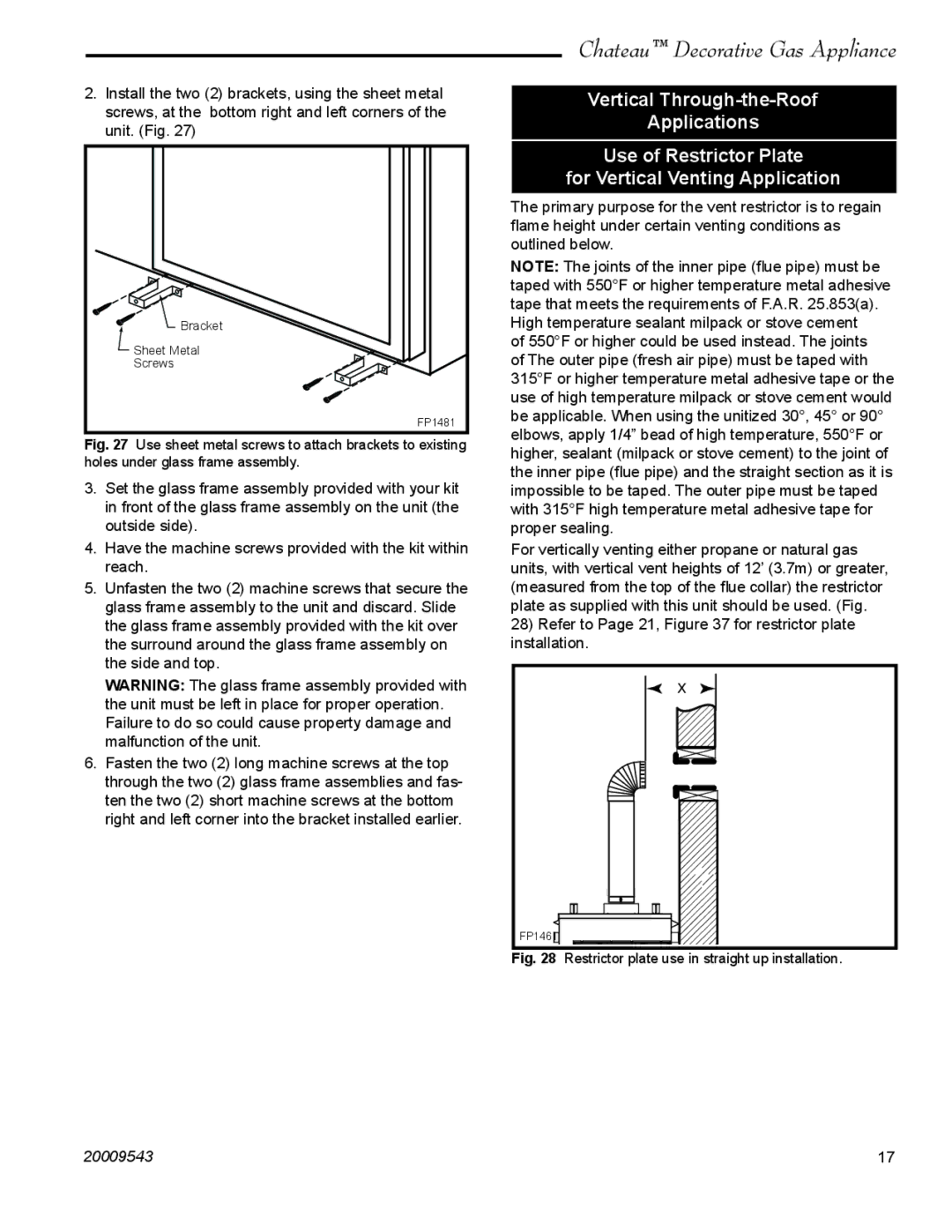
2.Install the two (2) brackets, using the sheet metal screws, at the bottom right and left corners of the unit. (Fig. 27)
Bracket |
Sheet Metal |
Screws |
FP1481 |
Fig. 27 Use sheet metal screws to attach brackets to existing holes under glass frame assembly.
3.Set the glass frame assembly provided with your kit in front of the glass frame assembly on the unit (the outside side).
4.Have the machine screws provided with the kit within reach.
5.Unfasten the two (2) machine screws that secure the glass frame assembly to the unit and discard. Slide the glass frame assembly provided with the kit over the surround around the glass frame assembly on the side and top.
WARNING: The glass frame assembly provided with the unit must be left in place for proper operation. Failure to do so could cause property damage and malfunction of the unit.
6.Fasten the two (2) long machine screws at the top through the two (2) glass frame assemblies and fas- ten the two (2) short machine screws at the bottom right and left corner into the bracket installed earlier.
Chateau™ Decorative Gas Appliance
Vertical
Applications
Use of Restrictor Plate
for Vertical Venting Application
The primary purpose for the vent restrictor is to regain flame height under certain venting conditions as outlined below.
NOTE: The joints of the inner pipe (flue pipe) must be taped with 550°F or higher temperature metal adhesive tape that meets the requirements of F.A.R. 25.853(a). High temperature sealant milpack or stove cement
of 550°F or higher could be used instead. The joints of The outer pipe (fresh air pipe) must be taped with 315°F or higher temperature metal adhesive tape or the use of high temperature milpack or stove cement would be applicable. When using the unitized 30°, 45° or 90° elbows, apply 1/4” bead of high temperature, 550°F or higher, sealant (milpack or stove cement) to the joint of the inner pipe (flue pipe) and the straight section as it is impossible to be taped. The outer pipe must be taped with 315°F high temperature metal adhesive tape for proper sealing.
For vertically venting either propane or natural gas units, with vertical vent heights of 12’ (3.7m) or greater, (measured from the top of the flue collar) the restrictor plate as supplied with this unit should be used. (Fig.
28)Refer to Page 21, Figure 37 for restrictor plate installation.
X
FP1461
Fig. 28 Restrictor plate use in straight up installation.
20009543 | 17 |
